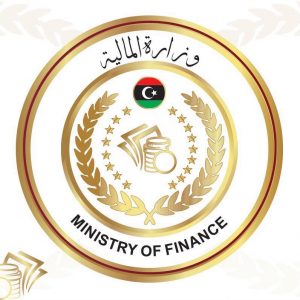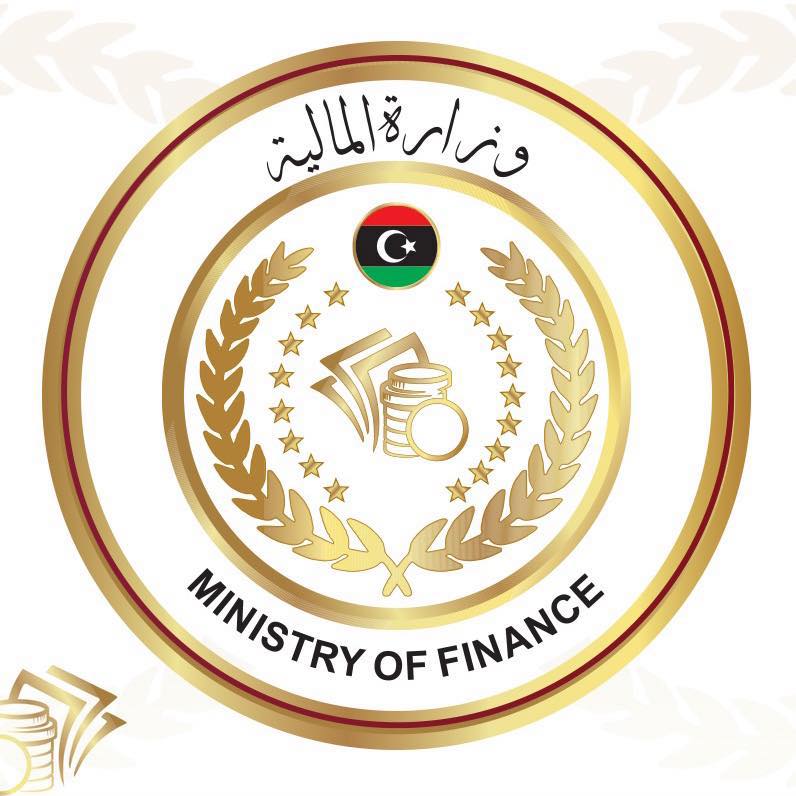By Sami Zaptia.

London, 17 June 2019:
In a thinly veiled criticism of the Tripoli Central Bank of Libya (CBL), the Faiez Serraj Ministry of Finance yesterday called for more hard currency to be made available for small businesses in order to help reduce hard currency demand in the black-market thereby reducing the black-market exchange rate currently at around LD 4.50 to the dollar. The official rate is LD 1.4 per US dollar.
The Ministry of Finance criticised the Serraj-led Presidency Council and the CBL for not completing and continuing with the economic reforms which supposed to be a comprehensive package: financial, monetary and commercial.
It criticised the PC and CBL for succumbing to a freeze and seemingly being satisfied by the discovery of an easy and effortless source of revenue.
The Ministry of Finance acknowledged the positive effect of the imposition of the foreign the 183 percent currency sales levy which it said has led to the of the prices of goods and services and the black market foreign exchange rate (currently around LD 4.50 per dollar) which at one stage had reached nearly LD 10 per dollar back in 2017.
The Ministry of Finance said that the aims of the current government should be higher than the gains already achieved since September 2018. It noted that the role played by small businesses in the Libyan economy is important and pivotal. They provide goods for the local market and help stabilize prices.
However, in accordance with existing regulations, the Ministry of Finance said, small businesses are unable to buy hard currency from banks and depend totally on the black market. This fact has contributed to the continued existence of the foreign currency black market, it added.
The Ministry of Finance revealed that since the hard currency sales levy was introduced on 1 October 2018, the CBL has sold US $ 8,736 billion with an accrued sales levy of LD 22,063 billion.
It estimates that 90 percent of personal hard currency purchased officially by Libyans from banks is sold onto the black market. This, it explains, is the source of foreign currency finance for small businesses in order to supply the Libyan market with the goods it needs.
However, the Ministry of Finance says that this situation has put it in a conflicting position where it is torn between enforcing the customs regulations by not allowing goods to enter the country that were not purchased through letters of credit or allowing goods through in order to increase the supply of goods and decrease prices.
It added that it hoped that the CBL will breakout of its frozen status by implementing the promised wider economic reforms and consider introducing direct transfers for small importers in order to bring them into a legal status. This, it explained, would reduce demand for black market currency and its higher exchange rate, provide the official banking system with increased cash to solve the cash crisis and further stabilize the Libyan market. It would also provide better auditing and mitigate money laundering.
It will be recalled during his 20 March 2019 brief on Libya to the UN Security Council, Ghassan Salame warned that ‘‘these benefits may be short-lived without genuine economic reform’’. He told the Security System that ‘‘the situation of the economy is mixed. The re-opening of the Sharara oil field, for which the UN played a crucial role, resulted in increased oil production that is returning to 1.2 million barrels per day. The foreign currency exchange fee, in combination with the liberalization of the opportunity to purchase foreign currency, continues to generate revenue, and strengthen the Dinar. This has increased purchasing power and reduced inflation and the profitability of the black market for currency.
While important, these benefits may be short-lived without genuine economic reforms. Such reforms require a direct devaluation of the currency and the lifting of subsidies which consume nearly 10% of the national budget. Working with the two branches of the Central Bank of Libya, the national audit review process will soon begin.’’, Salame concluded on the subject.
Analysis
Its telling that the Serraj Ministry of Finance has had to issue an official public statement in order to call for the continuing implementation of economic reforms that the CBL promised last year. It suggests that it is either not a full contributor to the reform debate or it feels it is being ignored. It also raises the question if it released this statement without clearance from Serraj or was it prompted by him.
The need for the Ministry of Finance to defend small business against big business may also reinforce the perception of corruption in the granting of hard currency letters of credit or cash-against-documents by the CBL. It is perceived to be in cahoots with big business, including a certain political stream and the dominant militia commanders in Tripoli – one of the main grievances put up by east Libya and the pro Hafter forces currently fighting against Tripoli.
It also adds fuel to the widely held belief that the CBL and Saddik El-Kabir have been acting unilaterally as the self-appointed guardians of Libya’s wealth, disregarding the various post-Qaddafi transitional governments. The CBL has been taking advantage of Libya’s political split and the geographical and political distance of its political bosses, Libya’s parliament – the House of Representatives. Due to the political split the board of the CBL has failed to meet and has been unaccountable to any higher authority.
Serraj has criticised the CBL publicly before in his long battle to obtain increased funds and improve Libya’s economy – before the CBL finally agreed to reforms in September 2018.
The CBL has proven very conservative since 2011 in its monetary policy and has been loathed to make any change, preferring to call for the politicians to improve the existing environment prior to making any monetary policy change. It was heavily criticised for being contradictory: on the one hand claiming that the various governments were too weak to trust with Libya’s finances – yet expecting them to affect change on the ground with regards to security and political stability.
One thing the CBL will probably point out at this time with regards to the Ministry of Finance’s statement is the timing. Greater Tripoli is currently totally absorbed financially, politically and militarily by a war which the CBL may feel is not the ideal time to launch the next phase of economic reforms.
https://www.libyaherald.com/2018/12/04/libyan-dinar-gains-value-as-economic-reforms-take-effect/
https://www.libyaherald.com/2018/11/24/libyas-economic-reforms-have-been-successful/
https://www.libyaherald.com/2018/10/11/cbl-not-delaying-economic-reforms-pcs-maetig/
https://www.libyaherald.com/2018/09/13/libyas-economic-reforms-a-tax-levy-on-foreign-currency-sales-increased-currency-allowances/
https://www.libyaherald.com/2018/09/13/long-promised-economic-reforms-agreed/
https://www.libyaherald.com/2019/03/17/libyan-business-sentiment-has-improved-vastly-since-october-but-could-be-even-better-with-a-few-more-reforms-leading-businessman-bey/
https://www.libyaherald.com/2017/04/14/dinar-continues-to-fluctuate-on-black-market/
https://www.libyaherald.com/2019/03/21/salames-latest-brief-to-un-security-council-qualified-praise-for-hafter-warned-against-mobilization-concerned-about-derna-confirmed-abu-dhabi-outcomes-need-more-economic-reforms-and-stre/






